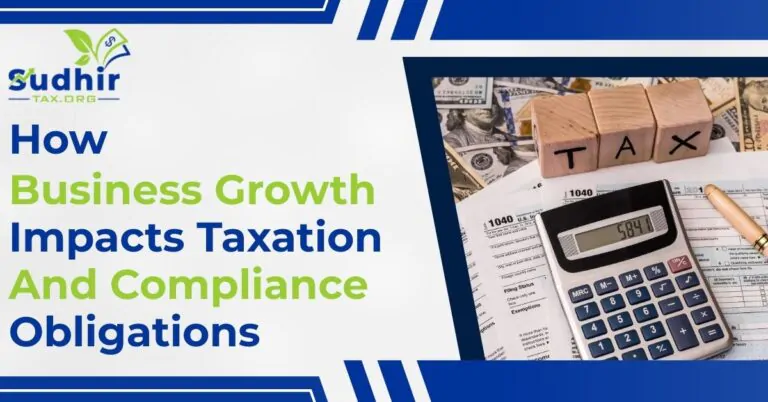The freelance and gig economy has changed the way Americans work. From writers and designers to Uber drivers and delivery partners, millions of people in the United States are now earning through independent contracts rather than traditional employment. While it provides flexibility and control, it also brings responsibility to handle taxes independently. Unlike the salaried employees receiving a W-2 form and taxes automatically being stopped, freelancers and gig workers will have to manage self-employment taxes, quarterly payments, deductions, and proper record-keeping. Understanding how to enter taxes as a freelancer in the United States ensures compliance by maximizing financial benefits.
Table of Contents
ToggleUnderstanding Freelance and Gig Worker Taxes
Freelancers and gig workers are considered self-employed by the IRS. This means that their income is under self-employment tax, which covers social security and medicare contributions besides federal and state income taxes. For 2025, the self-employment tax rate is 15.3% -12.4% for Social Security and 2.9% for Medicare.
Since no employer withdraws these taxes from the freelancers, they need to calculate, report, and pay the IRS directly. This responsibility is important to understand IRS forms, time limits, and acceptable deductions.
Income Reporting for Freelancers
Freelancers usually receive a 1099-NEC from customers who pay them more than $ 600 in the calendar year. However, all income should be reported to the IRS, whether it falls below or exceeds this limit, using a 1099 form. Form 1099-K, which reports payment transactions to gig workers earning through digital platforms such as Uber, Lyft, DoorDash, or Upwork.
To report this income, a freelancer uses Schedule C (Form 1040), which gives details of profits and losses from self-employment. Pure income from Schedule C is used to calculate self-employment tax on Schedule SE.

Quarterly Estimated Tax Payments
The biggest adjustment quarter for freelancers needs to be paid estimated. IRS hopes that taxes will be paid as income is earned at the end of the year rather than lump sum. Freelancers should estimate their income and pay taxes four times a year, usually in April, June, September, and January.
Failing to make these payments can lead to punishment and interest. To remain obedient, freelancers must track income regularly, set one percent separate for taxes, and use IRS Form 1040-ES to pay.
Deductible Business Expenses
- Tax cuts can significantly reduce the taxable income of freelancers and gig workers. IRS allows deduction for expenses that are “simple and necessary” to run a business. General cuts include:
- Home Office Deduction- If the part of your home is used exclusively for work, you can claim expenses such as rent, utilities, and internet as a percentage of the use of your home office.
- Vehicle and Travel Expenses- Group workers using cars for ride-sharing or delivery can cut the cost of mileage, gas, tolls, and maintenance, provided maintained.
- Equipment and Software- The expenses for laptops, cameras, software membership, or your freelance work are deducted for the equipment required.
- Health Insurance Premiums- A self-employed person paying for his own health insurance can cut the premium, which can be a significant savings.
- Proper documentation is important, as the IRS requires receipts, invoices, and mileage logs to confirm the cut.
State Taxes for Freelancers
Apart from federal taxes, freelancers should also follow state-level tax laws. States like Texas, Florida, and Nevada do not levy individual income taxes, which may be beneficial. However, most states, including New York, California, and Illinois, require freelancers to pay state income tax in addition to federal obligations. Some cities, like New York City, also levy a local income tax.
Record Keeping and Bookkeeping Practices
It is essential for freelancers to maintain accurate records to simplify tax filing and avoid an IRS investigation. Digital invoices, payment receipts, expenditure records, and mileage ensure accuracy when filing by maintaining logs. Many freelancers use accounting software, such as QuickBooks, FreshBooks, or Wave, to organize their finances and generate reports. The proper bookkeeping also helps in case of an IRS audit, where detailed documents are important.

Hiring a Tax Consultant for Freelancers
For many freelancers, managing taxes alone can be heavy. Files of errors, leftover deadlines, or unseen cuts can cause unnecessary financial burdens. Having a tax advisor or CPA to work with ensures compliance, saves time, and often results in low tax liability for expert advice.
An advisory helps structure income, plan cuts, establishes retirement accounts for self-employed individuals, and ensures quarterly payments. In addition, a professional can help freelancers infections in LLCs or S-Corps only for better tax efficiency.
Common Mistakes Freelancers Make with Taxes
Many freelancers struggle with taxes due to a lack of awareness. Some general mistakes include failing to set different money for taxes, not filing quarterly payments, ignoring individual and business expenses, or tracking small but cutable expenses. Another error is assuming that the income reported on only 1099 forms should be declared, while in fact, all earnings are taxable.
To avoid these mistakes, discipline, plan, and often professional assistance are required.
Conclusion
Getting taxes as a freelancer or gig worker in the United States may feel complicated, but with proper knowledge and a plan, it becomes manageable. It is important for understanding self-employment tax, keeping accurate records, paying quarterly, and claiming eligible cuts. Professional aid provides peace of mind for those who find tax filing stressful or time-consuming.
This is the place where Sudhirtax Private Limited proves to be a reliable partner for freelancers and gig workers. With specialization in tax consultation, bookkeeping methods, and professional formation, they simplify tax responsibilities, allowing individuals to focus on their work without financial stress. By relying on professionals, freelancers not only remain competitive but also position themselves for long-term financial success.









